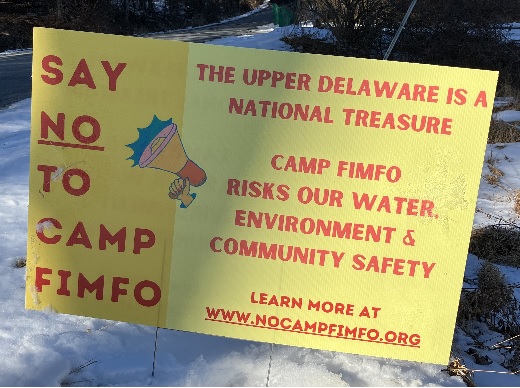Groundbreaking Report on Water Contamination from Fracking
June 24, 2013Utica Shale Promises, Challenges Examined
June 24, 2013A4 Saturday June 22, 2013 / The Leader
GUEST VIEW / SUSAN MULTER
I agree with Sen. Tom O’Mara. In his commentary in this paper on June 17 he favors legislation which would “put an end to the unfunded state mandates that impose unfair and unreasonable fiscal burdens on counties, cities, towns, villages and school districts.” An obvious example is Medicaid. I agree that it should be funded by the state.
Ironically, however, he does not apply the same principal when considering the “mother” of all state mandates that is proposed for New York: extraction of shale gas, commonly referred to as “fracking”. While short-term economical benefits to industry , lease holders, workers and some retailers will initially occur, the long-term economic costs to all of us are very high but rarely mentioned. Here are four examples:
- Damage to roads from frequent use by very heavy vehicles is significant. In Arkansas it has been astronomical. According to arkansonline.com as of June 2010. “The damage inflicted by heavy truck traffic on Arkansas’ state highways related to natural gas drilling in the Fayetteville Shale will cost $218.7 million to repair, or nearly seven times what the Arkansas Highway and Transportation Department has received from the increase in the severance tax on natural gas.” Here in New York there is no severance tax on drilling.
- School districts can suffer as well. Besides increased enrollment which costs more to serve, since the multination corporation Schlumberger settled in Horseheads, that school district is now considered more wealthy. Therefore, it no longer qualifies for the amount of state aid it previously did. Who will pay the difference?
- How about health care costs? In North Dakota where the oil industry is booming, workers come from across the country to seek employment. When they get badly hurt and wind up in the emergency room, many don’t have insurance. The New York Times reported on 1-28-13 that because of this problem McKenzie County Hospital has incurred a two thousand per cent increase in debt over the past four years.
- Then there are the residents living downwind of the drilling and fracking. According to the 2009 draft of the SGEIS (Supplemental Generic Environmental Impact Statement) of the Department of Environmental Conservation, the average number of truckloads to carry equipment, water, chemicals and sand to one well pad with eight wells is over 7,000. That means over 14,000 truck trips to allow for their return. The benzene alone in the diesel exhaust causes leukemia, but it may be years before our children and grandchildren are diagnosed with it. Who will pay for their treatment then? Other costs that will rise if extraction of shale gas is allowed by the state are for additional services rendered by police and fire fighters. Once again, local taxpayers will have to pay. There are also costs of social services. In Bradford County, PA., where rents have tripled from $400 to $1,200 per month, families have become homeless. While the adults may get by with sleeping under bridges or in their car, according to a local psychologist, the children are taken away and put into foster care.
Perhaps one reason the costs are overlooked is that the word ‘fracking’ is used by critics to mean the whole life cycle of extraction of shale gas, but everyone does not understand that. It includes, but is not limited to, the following:
1) mining and transport of silica sand which lead to inhalation of silica dust which causes silicosis and cancer; 2) exploration via test wells and seismic testing; 3) construction of access roads, pipelines and well pads, the equipment for which emits diesel exhaust which is categorized by the Word Health Organization as a carcinogen; 4) transport of sand, water and chemicals with periodic leaks and spills that get into surface water, 5) drilling, sometimes using compounds containing hexavalent chromium a known carcinogen whose chilling health effects are described in the film “Erin Brockovich”, 6) cementing which sometimes fails immediately but can also fail years later; 7) hydraulic fracturing of the shale which emits diesel exhaust fumes above ground and creates new fissures or widens old ones underground; 8) venting and flaring which put volatile organic compounds (VOCs) and Hydrogen Sulfide into the atmosphere; 9) compression of the gas which emits nitrogen oxides and VOC’s which interact to form ground level ozone; and 10) disposal of waste that can contain radioactive material and heavy metals such as arsenic, barium, chromium and lead.
In the above-mentioned article on state unfunded mandates, Sen. O’Mara is quoted as saying “If the state mandates it, the state should pay for it.”
It can be argued that for our state to allow extraction of shale gas via high volume, horizontal, hydraulic fracturing is not a mandate, it is an opportunity. Technically that is correct. However, for our state to allow an industry and some individuals to profit economically by doing something that degrades air and water quality, damages health, diminishes property values, and destroys family and community way of life, completely undermines our democracy. This is the problem that needs to be addressed.
Susan Multer is a former associate professor at Monroe Community College. She lives in Horseheads.



